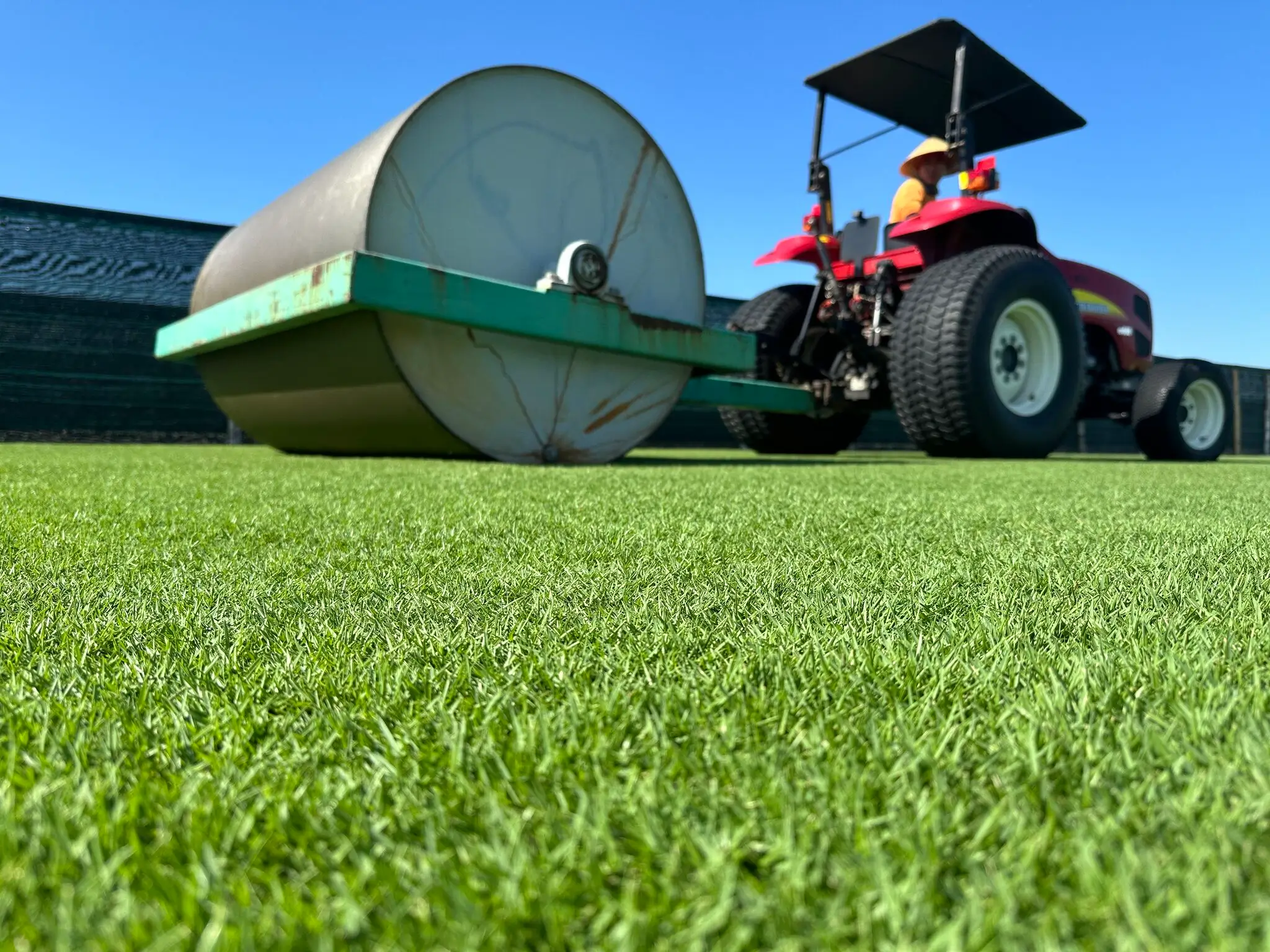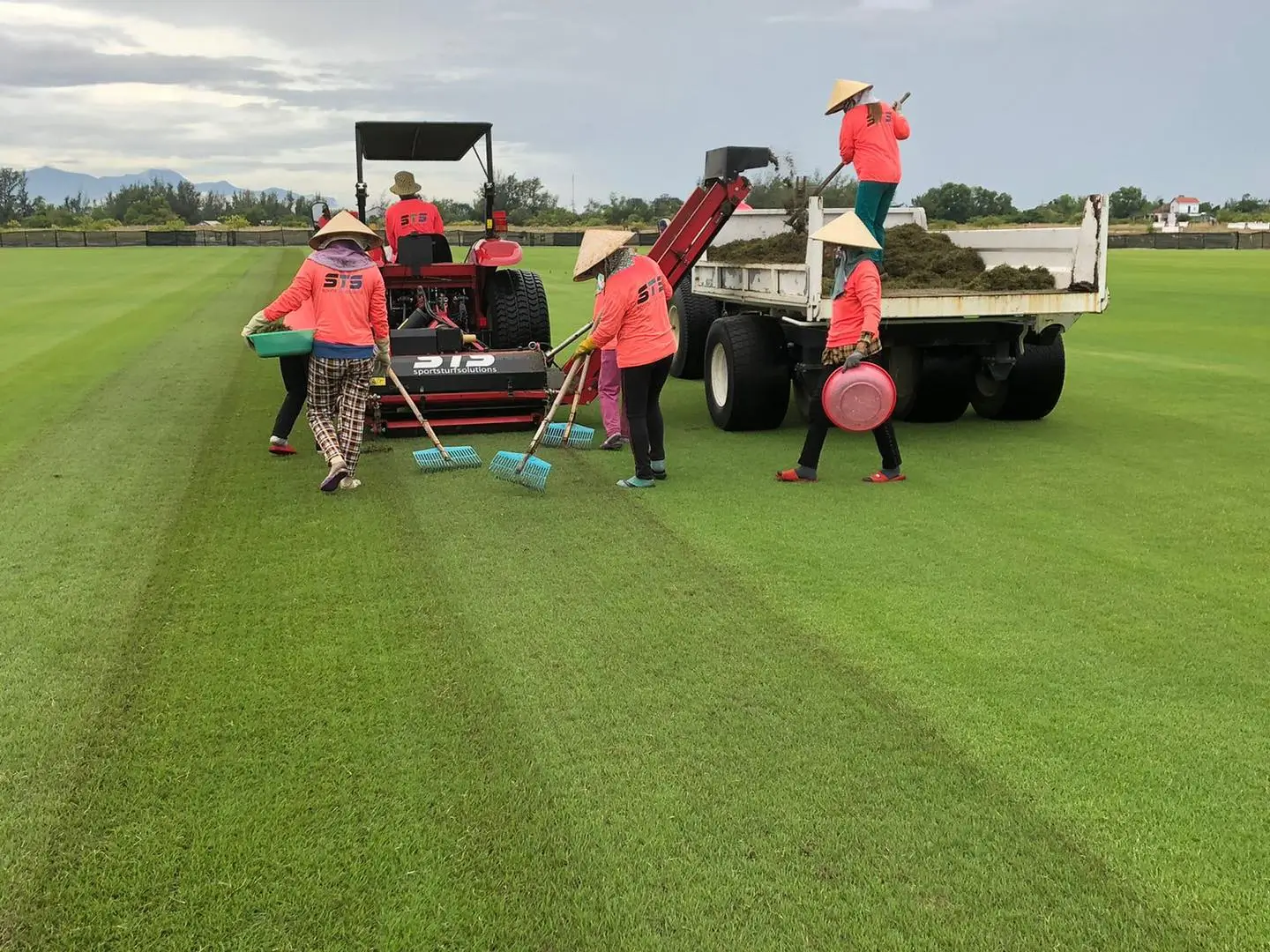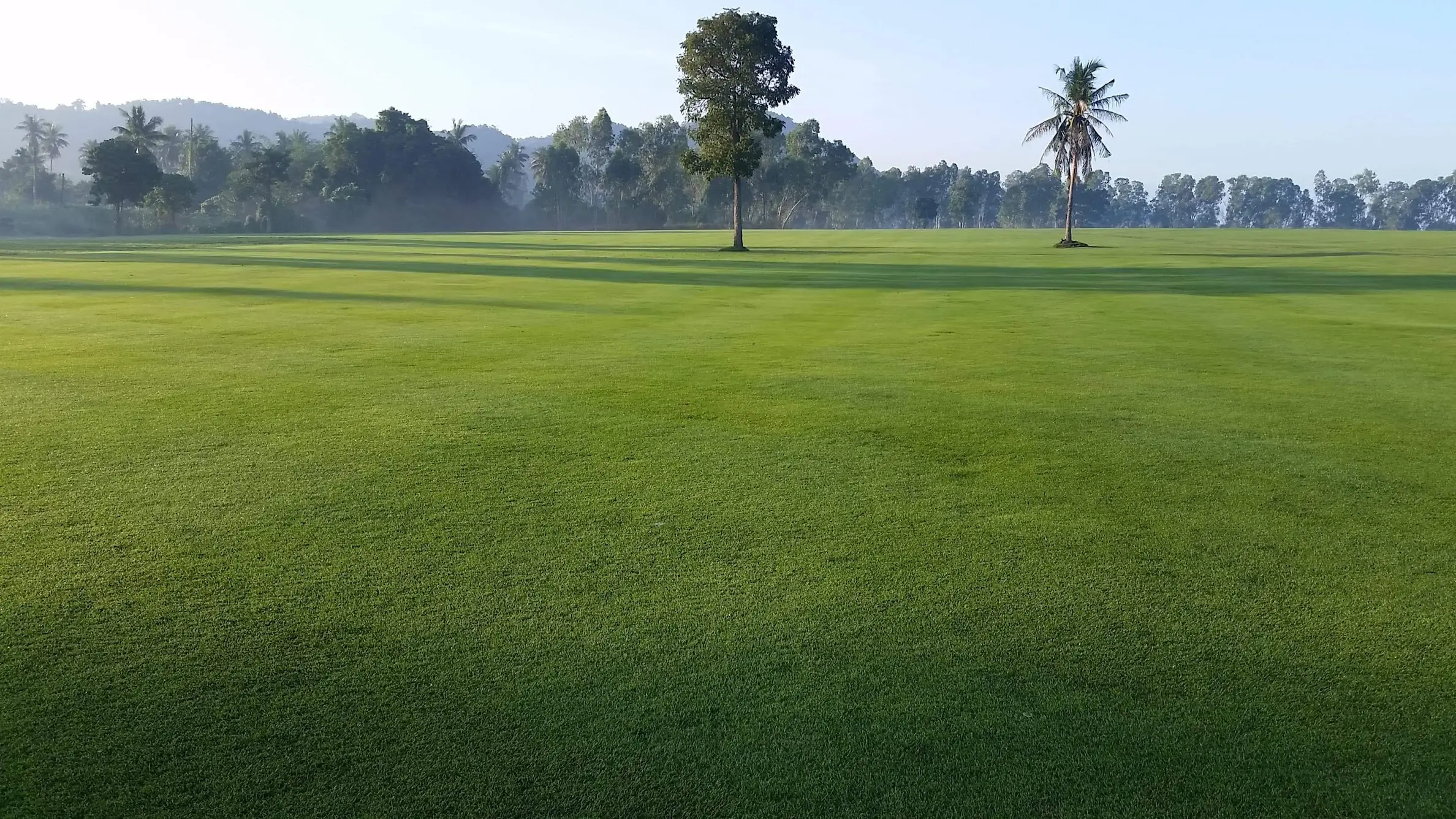Turf is one of the grounds we earthlings love to tread upon — sports fields, golf courses, and the green stretches surrounding the grandiosity of architecture. On the environmental spectrum, however, the conventional methods of turf farming have often been criticised for being resource-intensive, especially in water consumption, and ecologically unbalanced. In contrast, sustainable turf farming seeks to maintain the lushness under our feet while preserving nature’s vibrancy. But what does this verdant revolution entail, and how does it differ from the typical ‘green’ fare? Here’s a walk through what grows beneath our feet.
Defining the Green Scene
source: sustainableturffarms.com
Sustainable turf farming, like Coolabah Turf’s sustainable grass farm, involves the cultivation and harvesting of grass for various purposes while mitigating adverse environmental effects. The objective is to economically, socially, and ecologically produce turf without compromising its green aesthetic appeal.
Benefits Rooted in Real Change
Switching to sustainable turf farming methods provides a bouquet of benefits. Primarily, it diminishes the ecological footprint through the implementation of methods that support soil health and mitigate air and water pollution. Water, a valuable resource, is conserved through sustainable farming practices employing water recycling systems and drought-resistant grass species. Additionally, the promotion of natural habitats on or near the farm cultivates a biodiverse environment that encourages the presence of pollinators and wildlife.
Overcoming Green Giants’ Goldilocks Syndrome

source: sustainableturffarms.com
Sustainable turf farming is not all roses (or rather, not all grass). There are technical and systemic challenges involved in transitioning. A significant issue in conventional turf farming is the extensive reliance on pesticides and herbicides. A sustainable approach could involve implementing integrated pest management systems and cultivating resilient grass varieties that naturally repel pests. Energy efficiency is another focus, with farms utilising renewable energy sources like solar power. And of course, waste management is critical, aiming to reduce, reuse, and recycle green waste from the farm.
Casting the Green Turf Ahead
The future of sustainable turf farming is an exciting prospect. Advancements in robotics and remote sensing are aiding in precise farming practices and reduced labour. Additionally, community involvement is growing, with more farms integrating with local ecosystems and engaging with nearby residents to ensure the grass is greener for all involved.
The Lawn and the Short of It

source: sustainableturffarms.com
Sustainable turf farming represents a strategic shift towards a greener, more sustainable future, beyond just a passing trend. With resource-savvy moves, biodiversity boosts, and dodging harmful runoff, turf farmers become the green superheroes of environmental care. Turf industry, show off your eco-style by grooving with these sustainability beats.


